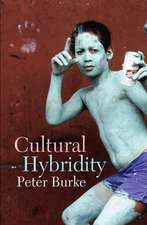Against Typological Tyranny in Archaeology: A South American Perspective
Editat de Cristóbal Gnecco, Carl Langebaeken Limba Engleză Hardback – 25 oct 2013
| Toate formatele și edițiile | Preț | Express |
|---|---|---|
| Paperback (1) | 638.43 lei 6-8 săpt. | |
| Springer – 23 aug 2016 | 638.43 lei 6-8 săpt. | |
| Hardback (1) | 644.95 lei 6-8 săpt. | |
| Springer – 25 oct 2013 | 644.95 lei 6-8 săpt. |
Preț: 644.95 lei
Preț vechi: 758.77 lei
-15% Nou
Puncte Express: 967
Preț estimativ în valută:
123.41€ • 134.47$ • 103.99£
123.41€ • 134.47$ • 103.99£
Carte tipărită la comandă
Livrare economică 23 aprilie-07 mai
Preluare comenzi: 021 569.72.76
Specificații
ISBN-13: 9781461487234
ISBN-10: 1461487234
Pagini: 256
Ilustrații: XVIII, 236 p. 30 illus., 6 illus. in color.
Dimensiuni: 155 x 235 x 18 mm
Greutate: 0.54 kg
Ediția:2014
Editura: Springer
Colecția Springer
Locul publicării:New York, NY, United States
ISBN-10: 1461487234
Pagini: 256
Ilustrații: XVIII, 236 p. 30 illus., 6 illus. in color.
Dimensiuni: 155 x 235 x 18 mm
Greutate: 0.54 kg
Ediția:2014
Editura: Springer
Colecția Springer
Locul publicării:New York, NY, United States
Public țintă
ResearchCuprins
Against typological tyranny. Cristóbal Gnecco and Carl Langebaek.- Social complexity in ancient Amerindian societies: perspectives from the Brazilian lowlands. Cristiana Barreto.- Blind men and an elephant: exchange systems and sociopolitical organizations in the Orinoco basin and neighboring areas in pre-Hispanic times. Rafael Gassón.- Palenques and palisades: a revision of social complexity issues in contact- period eastern Venezuela. Rodrigo Navarrete.- Agricola est quem domus demonstrate. Alejandro Haber.- Social space and the archaeology of inequality: insights into social differences at Ambato valley, southern Andes, Argentina. Andrés Laguens.- Poor chiefs: corporate dimensions of pre-Inca society in the southern Andes. Axel Nielsen.- Against the domain of master narratives: archaeology and Antarctic history. María Ximena Senatore and Andres Zarankin.- Testing a model of site location in the Alto Magdalena, Colombia. Víctor González.- Children of the creeks: cultural characterization of Nasa politics. Wilhelm Londoño.- On hybrids recently unleashed. Cristóbal Gnecco.- The role of place-making in chiefdom societies. Hope Henderson.- Words, things and text: El Infiernito, archaeology, documents and ethnology in the study of Muisca society. Carl Henrik Langebaek.
Notă biografică
Cristobal Gnecco is professor in the Department of Anthropology, Universidad del Cauca (Colombia), where he teaches issues related to the political economy of archaeology, discourses on the other, and geopolitics of knowledge.
Carl Langebaek is professor in the Department of Anthropology, Universidad de los Andes (Colombia), where he teaches archaeology and ethnohistory.
Carl Langebaek is professor in the Department of Anthropology, Universidad de los Andes (Colombia), where he teaches archaeology and ethnohistory.
Textul de pe ultima copertă
The papers in this book question the tyranny of typological thinking in archaeology through case studies from various South American countries (Venezuela, Colombia, Bolivia, Argentina, and Brazil) and Antarctica. They aim to show that typologies are unavoidable (they are, after all, the way to create networks that give meanings to symbols) but that their tyranny can be overcome if they are used from a critical, heuristic and non-prescriptive stance: critical because the complacent attitude towards their tyranny is replaced by a militant stance against it; heuristic because they are used as means to reach alternative and suggestive interpretations but not as ultimate and definite destinies; and non-prescriptive because instead of using them as threads to follow they are rather used as constitutive parts of more complex and connective fabrics. The papers included in the book are diverse in temporal and locational terms. They cover from so called Formative societies in lowland Venezuela to Inca-related ones in Bolivia; from the coastal shell middens of Brazil to the megalithic sculptors of SW Colombia. Yet, the papers are related. They have in common their shared rejection of established, naturalized typologies that constrain the way archaeologists see, forcing their interpretations into well known and predictable conclusions. Their imaginative interpretative proposals flee from the secure comfort of venerable typologies, many suspicious because of their association with colonial political narratives. Instead, the authors propose novel ways of dealing with archaeological data.
Caracteristici
Includes case studies from South America and most authors are from South America Departs from traditional metropolitan dominance Important for any decolonial/anticolonial consideration of archaeology Includes supplementary material: sn.pub/extras













